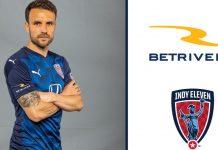Max Bichsel, VP US Sales, Gambling Group.com; Tod Kobrin, CEO of Oddsium; and Ed Moed, CEO of Hot Paper Lantern, came together to discuss the characteristics and habits of US sports bettors recently at the Betting on Sports America – Digital event.
Speaking on a panel titled Understanding the American Player, sponsored by Bet365 and Catena Media, the discussion was driven by moderator Lauren Seiler, Managing Director of Four Wood Capital Partners.
First to speak was Kobrin who talked about the difference between US and European and Asian bettors. He said: “Firstly in Europe, because it’s a much more mature market the customers are a lot more price-sensitive and we see a lot more in-play betting, where here in the US it’s very new. They don’t really care about price and we’re seeing a lot of parlay bets which operators love – they’re betting on more than one outcome so the margin is a lot higher for the operator. What you’ll see, as the market matures they’ll become a lot more similar to the European bettors.”
Turning to the issue of cost of acquisition and player retention in the US, Moed noted: “What we’re seeing is a fairly typical immature market. There’s a very significant push from everyone – as money flows in it’s all about customer acquisition and lowering the cost of customer acquisition. But there isn’t really a focus on loyalty because it’s all about – especially as states open up – how do I get more and more new customers?
Moed also questioned the ability to generate loyalty, saying that sports bettors are always going to go to three or four different sportsbooks to look at the odds. Building loyalty, he added, all boils down to building a brand and how it’s built.
“That’s really what we’re starting to see now from some of the biggest players,” he said. “But what we’re also still seeing is more one-off transactions. A couple of things I’ll say in terms of brand. It’s the way any organization should look at this. It’s a cultural experience. It’s an experience in itself what your brand is. And I don’t think enough organizations look at it that way – the way mature industries do, like the alcohol industry.
“Let’s get away from this sea of sameness that’s out there with all these promo ads. Let’s look at creating more sophisticated, higher end personalized advertising that really works versus transactional promos that are going to get someone there because they might be able to get $500 with their first bet but there’s no reason for them to come back.”
Bichsel, however, was quick to remind delegates that sports wagering is hardly a new development in the US and reminded them of the ongoing need to curtail black market betting.
He told delegates. “I think it’s good to take a step back and understand that online casino and sports betting was not invented with the repeal of PASPA. This is not so much about acquiring customers that are new or novice or avid sports bettors. This has been going on for a while so it’s really the responsibility of the operators to try to acquire and transition customers from a black and grey market to a regulated market.
“So you’re not so much convincing people to bet on sports as it’s already going on and it’s probably going on in a much larger scale in the black and grey market than it is going on in a regulated, white market right now.”













